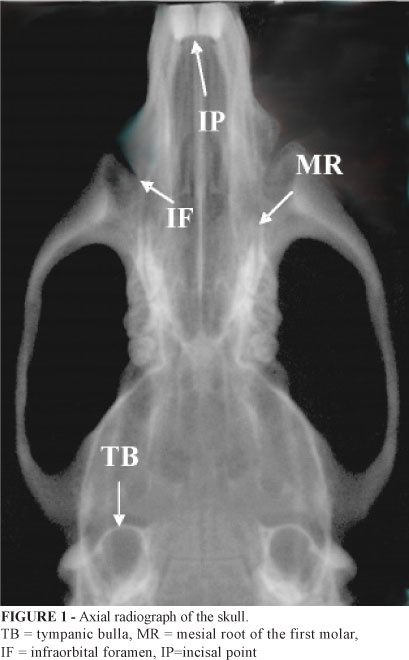PURPOSE: To analyze the effects of detachment and repositioning of the medial pterygoid muscle on the growth of the maxilla and mandible of young rats through cephalometry. METHODS: Thirty one-month-old Wistar rats were used, distributed into three groups: experimental, sham-operated and control. In the experimental group, unilateral detachment and repositioning of the medial pterygoid muscle was performed. The sham-operated group only underwent surgical access, and the control group did not undergo any procedure. The animals were sacrificed at the age of three months. Their soft tissues were removed and the mandible was disarticulated. Radiographs of the skull in axial projection and the hemimandibles in lateral projection were obtained, and cephalometry was performed. The values obtained were subjected to statistical analyses among the groups and between the sides in each group. RESULTS: There were significant differences in the length of the mandible relative to the angular process in the experimental group and in the height of the mandibular body in the sham-operated group. CONCLUSION: The experimental detachment and repositioning of the medial pterygoid muscle during the growth period in rats affected the growth of the angle region, resulting in asymmetry of the mandible.
Pterygoid muscle; Maxillofacial development; Growth and development; Rats




